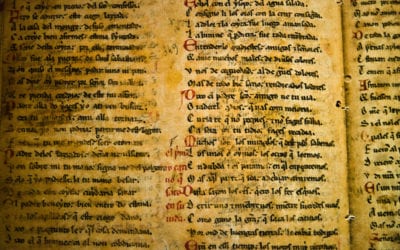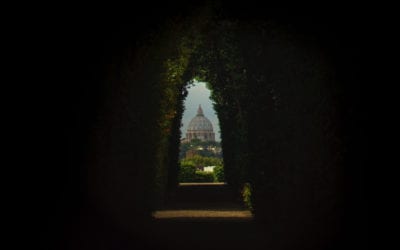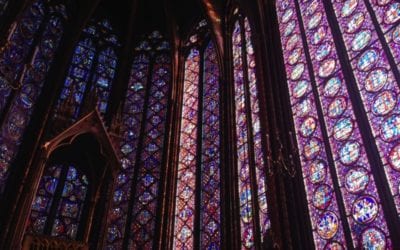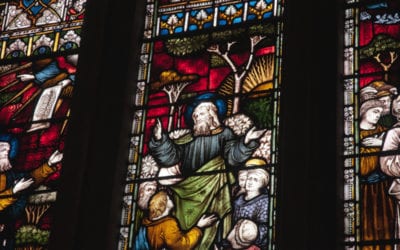The early Catholic position about bread and wine becoming the literal body and blood of Christ was clearly stated. For example, the Council of Trent (1551 AD) wrote, “a change is brought about of the whole substance of the bread into the substance of the body of Christ our Lord, and of the whole substance of the wine into the substance of his blood.” The Catholic Church claimed that a miracle occurred where the bread became the actual body of Christ, and the wine became the blood of Christ.
Since chemical analysis has become widely available, scientists proved that no physical change occurs to either the bread or the wine. Needing to explain this conflict with scientific findings, the Church invented the term “accidents” to answer critics. It is now widely admitted that “accidents” in Catholic communion bread do not change. The list of “accidents” started with obvious characteristics, such as appearance and taste—which everyone agrees remains the same.
That “accidents” explanation might have worked, except for an obscure protein in grains used to make the communion bread, called gluten. This protein is toxic to a small number of people. While a typical diet contains up to 40 grams of gluten per day, a person with gluten sensitivity, called celiac disease, must eat a gluten-free diet. For the celiac patient, diets as low as one hundred milligrams per day have damaged health, which is equivalent to 1/48th of a slice of bread.
If communion bread were transformed into the actual body of Christ during the mass, then the bread would take on the very nature of Christ. Accordingly, the gluten would become benign. Celiac persons could then safely participate in communion. Take note in the following poem, “But since you have its nature changed, it (the gluten in the bread) cannot really matter.” However, gluten does matter—gluten-sensitive people cannot safely eat communion bread.

Is it Jesus, or Poison?
A pretty maid, a Protestant, was to a Catholic wed
To love all Bible truths and tales, quite early she’d been bred.
It sorely grieved her husband’s heart that she would not comply,
And join the Mother Church of Rome and heretics deny.
So day by day he flattered her, but
Would ever come from bowing down to idols made of wood.
The Mass, the host, the miracles, were made but to deceive;
And transubstantiation, too, she’d never dare believe.
He went to see his clergyman and told him his sad tale.
“My wife is an unbeliever, sir; you can perhaps prevail;
For all your Romish miracles my wife has strong aversion,
To really work a miracle may lead to her conversion.”
The priest went with the gentleman—he thought to gain a prize.
He said, “I will convert her, sir, and open both her eyes.”
So when they came into the house, the husband loudly cried,
“The priest has come to dine with us!” “He’s welcome,” she replied.
And when, at last, the meal was
To teach his hostess all about the sinful state of man;
The greatness of our Savior’s love, which Christians can’t deny.
To give Himself a sacrifice and for our sins to die.
“I will return tomorrow, lass, prepare some bread and wine;
The sacramental miracle will stop your soul’s decline.”
“I’ll bake the bread,” the lady said. “You may,” he did reply,
“And when you’ve seen this miracle, convinced you’ll be, say I.”
The priest did come accordingly, the bread and wine did bless.
The lady asked, “Sir, is it changed?” The priest answered, “Yes.
It’s changed from common bread and wine to truly flesh and blood;
Begorra, lass, this power of mine has changed it into God!”
So having blessed the bread and wine, to eat they did prepare.
The lady said unto the priest, “I warn you to take care,
For half an ounce of arsenic was mixed right in the batter,
But since you have its nature changed, it cannot really matter.”
The priest was struck real dumb—he looked as pale as death.
The bread and wine fell from his hands and he did gasp for breath.
“Bring me my horse!” the priest cried, “This is a cursed home!”
The lady replied, “Begone;
The husband, too, he sat surprised, and not a word did say.
At length he spoke, “My dear,” said he, “the priest has run away;
To gulp such mummery and tripe, I’m not for sure, quite able;
I’ll go with you and we’ll renounce this Roman Catholic fable.”
(Author Unknown)
The place of God’s dwelling today is within believers, the body of Christ on earth.
And if the Spirit of him who raised Jesus from the dead is living in you, he who raised Christ from the dead will also give life to your mortal bodies because of his Spirit who lives in you. (Romans 8:11)
Do you not know that your bodies are temples of the Holy Spirit, who is in you, whom you have received from God? You are not your own; (1 Corinthians 6:19)
Ten Commandments
The Ten Commandments are among the initial religious values taught to children. The Roman Catholic Church teaches only nine of these commandments. The second commandment forbids idolatry. Catholic teaching conceals this command to conceal the idolatry that permeates...
Papal Authority
The Catholic Church asserts that Peter was the rock on which God built the worldwide Church. Their belief is that the following scripture established Peter as the first Pope. And I tell you that you are Peter, and on this rock I will build my church, and the gates of...
Saints
The word “saints” is synonymous with “believers.” Paul’s letters were addressed to the saints of various churches.
Tradition
Catholic rules prevent priests and nuns from marrying, while forbidding specific food, such as meat on Fridays during Lent. Paul foretold these two requirements two thousand years ago, calling them things taught by demons. “The Spirit clearly says that in later...
The Blood Covenant
The Lord confides in those who fear him, he makes his covenant known to them. (Psalm 25:14)Salvation is only through a personal, covenant relationship with God. This is the covenant I will establish with the people of Israel after that time, declares the Lord.I...




